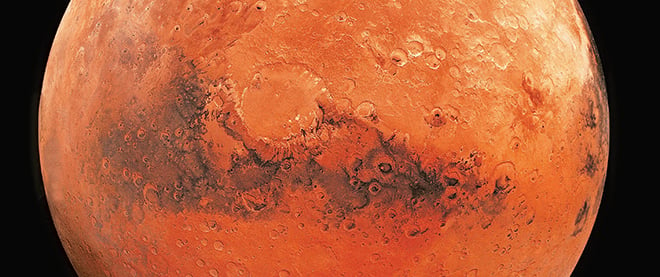Newsmakers of the day: Canada’s Mars One semi-finalists
Newsmaker, Feb. 17: Four Ontarians, two British Columbians are among the Mars mission’s top 100 contenders
Share

Six Canadians just got one step closer to living every kid’s dream.
Today, Mars One released the names of 100 semifinalists in the running to take part in the highly ambitious—or fatally foolish, according to some—$6-billion mission to colonize the red planet by 2025. Four Ontarians and two British Columbians made the cut, along with 94 other continent-spanning candidates culled from the original pool of more than 200,000 applicants. Mars One, a Netherlands-based non-profit, accompanied its announcement with a Hollywood blockbuster-calibre trailer video. The mission will also be a reality-TV show, after all.
The six Canadians competing for a spot in the final 24 are: Toronto’s Reginald Foulds, a former military pilot and self-proclaimed jack-of-all-trades; TV journalist and teacher Karen Cumming of Burlington, Ont.; Toronto’s Andreea Radulescu, a Romanian-Canadian IT analyst; English teacher Joanna Hindle from Whistler, B.C.; Vancouver scout leader Sue Higashio Weinreich; and University of Waterloo Ph.D. candidate Ben Criger. (A seventh semifinalist from Whitehorse decided to drop out after he was selected.)
The 50 male and 50 female semifinalists will be interviewed again and will participate in a series of challenges to test their teamwork and leadership abilities before Mars One makes its final cut. The remaining candidates will then gear up for the project’s manned launch in 2023; four will go on the first shuttle, with subsequent groups of four embarking every two years.
If everything goes as planned, that is. Last year, a Massachusetts Institute of Technology study seriously questioned the mission’s feasibility. The MIT team conducted a Mars One simulation—“a Sim City for Mars,” as project lead Sydney Do describes it—which found that, even if the organization finds the money it needs to bankroll the mission, the astronauts will likely survive for only 68 days, due to problems with the atmosphere and the food, as well as other mission flaws.
Criger, the Waterloo Ph.D. student, is realistic about his chances of actually colonizing Mars, however. “I would give it, like, 0.1 per cent,” he told CTV News. “But you never know. Nobody wants to be the person who dropped out because they were too cynical. If there’s even the remotest chance that it’s going to happen, I’m going to give it my all.”